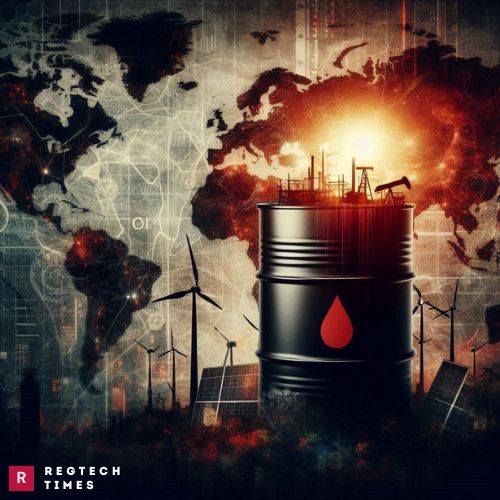Oil has long been the engine that powers the world. Countries rely on it to fuel cars, planes, factories, and economies. Its importance has made it a key player in global politics, trade, and even conflicts. Yet, signs are emerging that it’s dominance might be losing some of its shine.
China, the largest global consumer of crude, still plays a significant role in driving demand, but its appetite for oil is starting to slow. This year, China’s imports are expected to grow by a modest 1%. While it still depends heavily on foreign sources for most of its oil, the rise of electric vehicles and alternative energy sources are beginning to ease its reliance on traditional fuels.
At the global level, the energy market remains volatile. Last year, prices briefly spiked when the United States imposed stricter sanctions on Russia and Iran, pushing Brent crude to $82 per barrel. However, price fluctuations have become more common, and such spikes are often short-lived..
OPEC+ Holds Firm
Meanwhile, oil-exporting countries like Saudi Arabia and Russia are cautious about increasing production. Despite calls for more supply to lower prices, especially from countries like the US, major producers under the OPEC+ alliance are holding back. For now, they seem content to keep output limited to maintain higher prices, even as global demand slows.
Colombia’s President Cancels $880M Oil Venture to Protect Nature
For instance, Saudi Arabia, one of OPEC+’s most influential members, needs oil prices around $96 per barrel to balance its budget. However, agreeing to a durable price level across all OPEC+ members is far from easy. Calls by the United States to boost production, especially during events like the World Economic Forum, have largely been ignored.
This cautious approach by OPEC+ highlights how carefully producers are navigating the current crude market, balancing supply with slowing demand to protect their revenues.
Geopolitical Power of Energy
Energy resources remain a central issue in geopolitics, with countries aligning themselves based on energy security and trade. The relationship between China and Russia is a prime example of this. Since the European Union and the United States reduced their energy imports from Russia, China has stepped in as the primary buyer of Russian crude.
The strategic importance of this energy partnership is clear, as Russia needs China to help support its economy amid sanctions. As a result, the two countries have strengthened their alliance, which extends beyond just energy.
The global landscape is also shifting as many countries seek to lessen their dependence on a single energy source. Europe’s drastic reduction of Russian oil imports, by as much as 90%, shows how nations are diversifying their sources of energy. These changes illustrate the growing importance of energy independence.
Disruptions and Vulnerabilities
Despite efforts to reduce oil’s grip, its ability to cause disruptions remains strong. For instance, attacks in the Red Sea on commercial ships have highlighted how vulnerable supply chains remain. Similarly, tensions in the Middle East, like the war in Gaza, show how energy resources remain at the heart of regional and international disputes.
Trump’s Reckless Tariffs Could Backfire, Forcing U.S. to Rely on Sanctioned Venezuelan Oil
Even though oil-producing countries like Saudi Arabia once used it as a weapon during conflicts in the 1970s, times have changed. Now, these nations are under pressure to sell oil at high prices to fund their ambitious economic reforms. However, agreeing on a steady high price isn’t easy. For example, Saudi Arabia needs prices around $96 per barrel to balance its budget, but such levels are rarely sustained for long.
Continuing Global Reliance
Despite the rise of renewable energy sources, the global economy remains deeply tied to oil. The United States, for example, has continued its push for increased domestic production to meet its energy needs and keep prices low. Meanwhile, oil-based products like plastics and petrochemicals ensure that demand for it remains strong, especially in emerging markets.
Though alternative energy sources are gaining ground, oil still holds sway over the global economy. Countries like Russia and China continue to rely on energy exports as a key part of their economic strategies. Oil-producing nations are also cautious about flooding the market with excess supply, maintaining control over prices through agreements like those made by OPEC+.
Though the world is beginning to explore more sustainable energy options, the transition away from oil is not expected to happen overnight. As oil-producing nations work to diversify their economies, oil remains a driving force in both trade and international relations.


